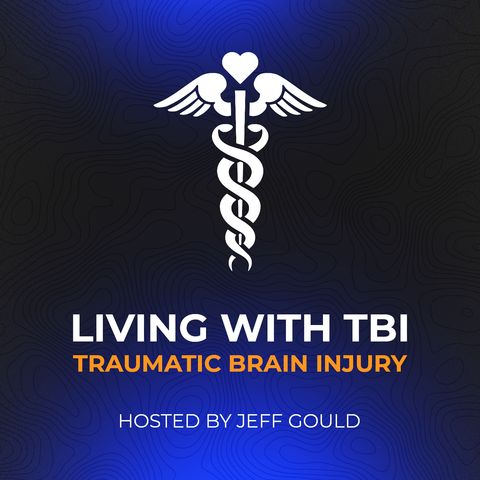10 MAY 2024 · In this episode of "Living With Traumatic Brain Injury" (LWTBI), co-hosts Mark Goode and Jeff Gould delve deep into the complexities of the human brain, specifically focusing on memory and the effects of traumatic brain injuries (TBI). Their guest, https://charanranganath.com/, a recognized expert in the field of brain science and author of the book "Why We Remember," sheds light on how memories are formed, stored, and how TBIs can affect this intricate process.
The Prefrontal Cortex and Traumatic Brain Injury
One of the episode’s highlights is Dr. Ranganath's explanation of the prefrontal cortex's pivotal role in memory and executive functions. This area of the brain, accounting for about one-third of its volume, becomes significantly impaired with frontal head injuries. He describes such injuries as potentially causing the brain to act similarly to a piece of jello, shaking back and forth, leading to both direct damage and disconnection within the white matter that facilitates brain area communication. This disruption severely affects one's ability to concentrate, keep information in mind, and resist impulses, among other executive functions.
Memory: A Multifaceted Process
The discussion transitions into a broader exploration of memory, with Dr. Ranganath offering personal insights and professional findings. He describes memory not as a simple storage system but as a complex, episodic recollection that integrates who, what, when, and where into a coherent whole. Remarkably, emotional intensity and unique associations significantly enhance memory retention, with smells and sounds acting as strong cues to trigger past experiences stored in our brains.
Dr. Ranganath also touches upon the fascinating intersection of memory and interventions like EMDR (Eye Movement Desensitization and Reprocessing), sharing anecdotal evidence of its effectiveness in recalling and processing traumatic memories. This part of the conversation underscores the dynamic relationship between various senses and memory recall, hinting at the profound emotional components inherent in our memories.
Life with TBI: Strategies and Interventions
Towards the episode's end, practical advice is offered for individuals navigating life post-TBI. Emphasizing the importance of creating an environment that compensates for impaired executive functions, Dr. Ranganath suggests strategies such as minimizing distractions, using reminders, and establishing structured routines to support daily tasks. These interventions mirror his personal strategies for managing ADHD, highlighting the universal benefit of structured support for cognitive disorders.
Additionally, Jeff Gould shares insights on improving memory and brain health, emphasizing activities that challenge the brain, like learning new languages or engaging in tasks that deviate from one's comfort zone. This proactive approach advocates for neuroplasticity, encouraging the development of new neural pathways to mitigate the effects of memory impairment caused by TBI.
Episode Takeaways
This episode offers a rich exploration of the brain's complexity, particularly focusing on memory and the aftermath of traumatic brain injuries. Through Dr. Ranganath's expert lens, listeners gain a deeper understanding of how TBIs affect memory, alongside actionable advice for those looking to improve their cognitive function post-injury.
Whether you're a TBI survivor, a caregiver, or simply fascinated by the human brain, this episode is a must-listen, packed with insights that enlighten and empower. Dr. Ranganath’s contribution, alongside the thoughtful dialogue with the hosts, makes for an educational and inspiring discussion, shedding light on the resilience and adaptability of the human brain.
For more information about Jeff Gould or to contact him, visit his website athttps://tbicoaches.com


